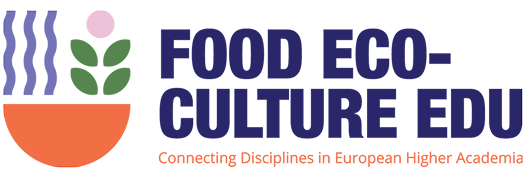We’re excited to kick off our journey with the Food Eco-Culture Edu project, a groundbreaking initiative designed to reshape the future of food and hospitality education across Europe. With increasing pressures from economic, environmental, and social challenges, our sector is in need of innovative, interdisciplinary solutions. The Food Eco-Culture Edu project addresses these challenges head-on by equipping students, educators, and industry professionals with the skills and knowledge to navigate the evolving food landscape.
Why It’s Needed
The food and hospitality industries are facing a growing range of challenges: from sustainability issues and workforce shortages to the need for more inclusive and diverse practices. Alongside these pressures, there’s a decline in student enrolment in food-related courses, further exacerbating the shortage of skilled professionals in the sector. The negative perceptions surrounding food & hospitality, including concerns about environmental impact and social sustainability, have deterred many young people from considering careers in this field.
The Food Eco-Culture Edu project was created to address these pressing issues, providing a fresh, innovative approach to education that combines academic learning with real-world application. By embedding sustainability, cultural awareness, and entrepreneurial thinking into the curriculum, we aim to revitalize interest in the food sector and prepare the next generation of leaders for the challenges and opportunities ahead.
Our Goals & Objectives
The primary goal of Food Eco-Culture Edu is to develop a dynamic, interdisciplinary curriculum that integrates food, hospitality, and related disciplines. We want to equip students with the knowledge, skills, and critical thinking necessary to tackle contemporary challenges and drive positive change in the industry. Our objectives include:
- Developing an Interdisciplinary Curriculum: Working with 20 HEI educators, 20 community representatives, and food & hospitality industry experts, we will create a curriculum that addresses sustainability, nutrition, cultural identity, and food innovation.
- Creating Living Labs: These hands-on, real-world testing environments will allow students to apply their learning to solve real-world problems, collaborating with businesses and community groups.
- Engaging a Broad Network: We aim to engage 300 students across four universities, ensuring the curriculum is tested, refined, and ultimately adopted by higher education institutions across Europe.
- Fostering Collaboration: Collaboration between education, community groups, and the food & hospitality industry is at the heart of the project. This will ensure that the curriculum is practical, relevant, and rooted in the needs of the sector.
What’s in the Pipeline?
In the coming months, we’ll be busy developing the Future of Food Report, which will serve as the foundation for our curriculum. This research-based document will draw on insights from a wide range of stakeholders, including students, educators, industry professionals, and community groups. From there, we will create our Food Eco-Culture Edu Curriculum, which will focus on sustainability, food culture, and the interdisciplinary skills needed to thrive in the evolving food industry.
We’ll also be setting up our Living Labs, which will provide students with the opportunity to work on real-world food sector challenges. These labs will be established across our partner universities, allowing students to collaborate with local businesses and community organisations to develop innovative, sustainable solutions.
Who’s Involved?
We’re proud to work alongside a fantastic group of partners who bring their expertise, experience, and commitment to the project:
- NHL Stenden: A leader in hospitality education, NHL Stenden brings a design-based approach to learning and has strong ties with the hospitality industry, particularly in sustainability.
- The Technological University of the Shannon: Midlands Midwest (TUS): With deep connections to the food industry and a focus on applied research, TUS will play a key role in developing the curriculum and engaging with regional communities.
- The University of Groningen: With a focus on sustainability and interdisciplinary research, the University of Groningen will provide valuable insights into the role of food in global health and environmental governance.
- The Polytechnic University of Cávado and Ave (IPCA): IPCA brings expertise in food innovation and sustainable tourism, ensuring that the project remains at the forefront of food education in Portugal.
- Momentum: An award-winning organisation known for its innovative curricula and educational strategies, Momentum will help design and deliver the project’s blended learning resources and training materials.
- European E-Learning Institute (EUEI): EUEI’s expertise in digital learning will ensure that the project’s resources are accessible, inclusive, and engaging, supporting the development of interactive learning environments.
Looking Ahead
As we embark on this exciting journey, we’re eager to share our progress with you. Stay tuned for updates as we work together to create a more sustainable, inclusive, and innovative food and hospitality education system. Together, we can transform the way food is taught, experienced, and enjoyed, shaping a brighter future for both the industry and society as a whole.
Thank you for joining us on this adventure!
By Kathryn O’Brien (EUEI)



